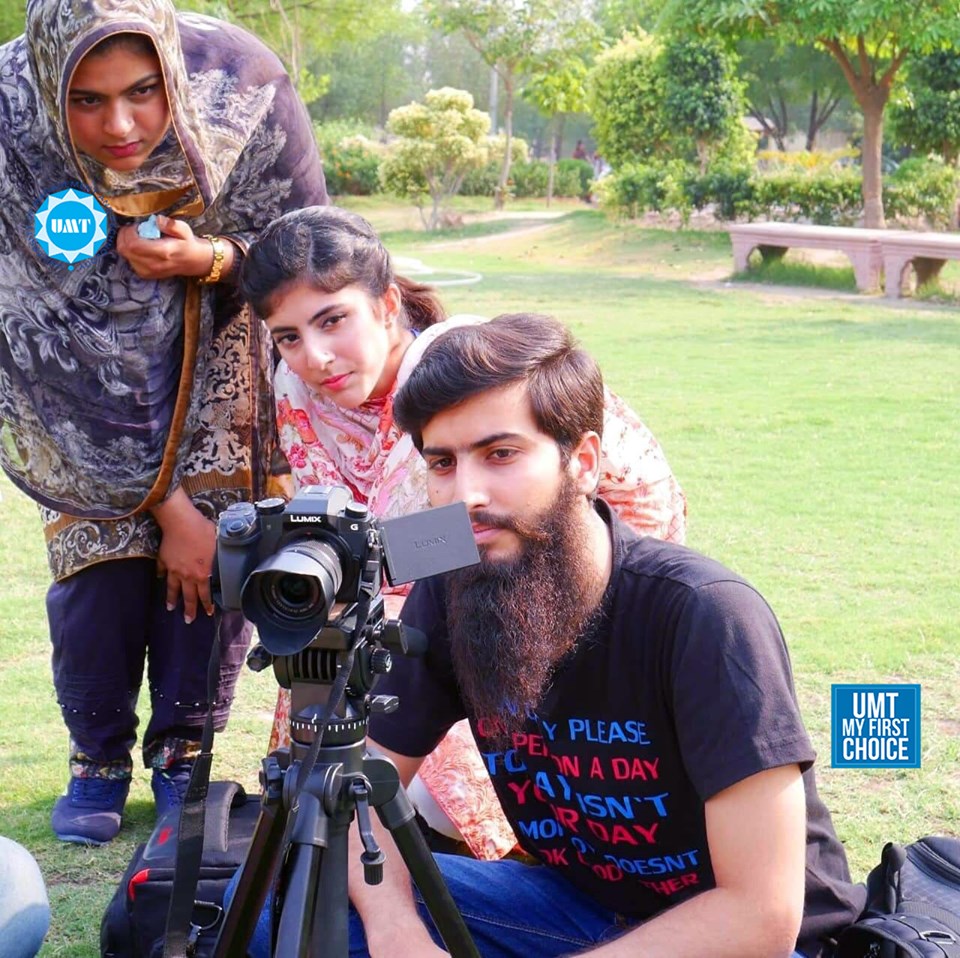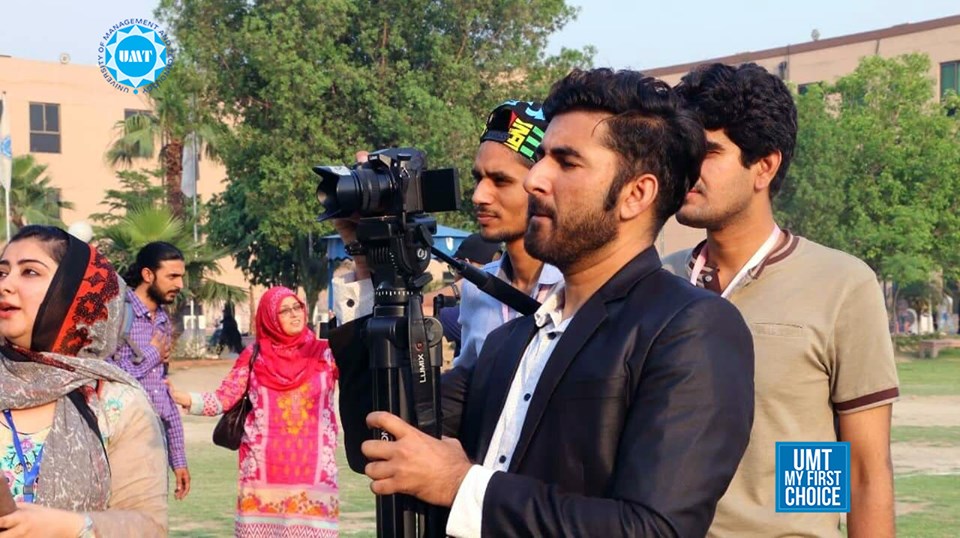A short filmmaking workshop was organized by Dean, SM&CS Prof Mugheesuddin Sheikh with the collaboration of “The Little Arts” a non-profit organization from May 13-17, 2019 at UMT. SM&CS Faculty members, Saud Baig, and Sadaf Zubair served as workshop coordinators.
“The little Arts” is a non-profit art education organization that uses the medium of art to promote social values among children and young adults in Pakistan. The renowned documentary movie maker Ammar Aziz and his team were acquired to teach the students about the complete processes of documentary/ filmmaking
A large number of students showed interest to participate in the workshop but there were only limited seats available, thus the management decided to conduct interviews to select the most eligible students for the workshop.
Day 1: The workshop started on May 13 and Ammar Aziz started off with his introduction and interests in the filmmaking field. After the introduction, he shed some light on the history of film making started back in 1878, with a bet between friends whether all four of the horse’s feet stay in air or not at the same time while the horse sprints, which resulted in creation of a motion picture named “horse in motion” is known as the first film ever made.
Then he discussed two essentials to make a film i.e. technology and its soul, how do both essentials play their role in making a film interesting and good. He then discussed two elements, form and content of the film; and elaborated that everything revolves around these two elements. He further explained to the students that documentaries are an important piece of history and discussed the different types of films to help students understand the difference between a fictional and documentary film by playing different videos. The students were advised to focus on the observational type of documentary in which there is no interaction between filmmakers and who are being documented, and the filmmakers only follow their subject’s routine life without giving any instructions. The lecture was wrapped by explaining different shot types and their use in different situations.
Day 2: A guest speaker Miss Sara was invited to highlight gender stereotypes before students. She threw light on the need to break these stereotypes in the modern era of gender equality. She showed some videos of such examples with the arrangement of some role reversal activities in which some situations were created and asked the students to act in order to encourage the students.
Day 3: Ammar Aziz started the lecture elaborating a little more about shot types and showed videos to clarify the ideas to students by making three groups of students. They were assigned cameras and were asked to practice the shot types on the campus premises. At the end of the day, students were asked to brainstorm and come up with the ideas in the next class to shoot their own documentary.
Day 4: Students shared their ideas with the class from which three topics were selected and assigned to the groups; the equipment was handed over to each group to shoot their documentaries with the technical assistance of staff members. The activity took place within the campus premises.
Day 5: Mr. Irfan, a video editor was invited to edit the projects to teach the students some basic editing methods. The final editing will take place in the editing lab and if any project found “soulful”, it will be selected to be presented at the upcoming film festival. As the workshop came to an end, the students thanked Ammar Aziz and the team for their precious time and shared their views about their learning experience from the workshop.
As the workshop was conducted during the month of Ramadan, the Iftar was served throughout the workshop for both the team and the participants.

